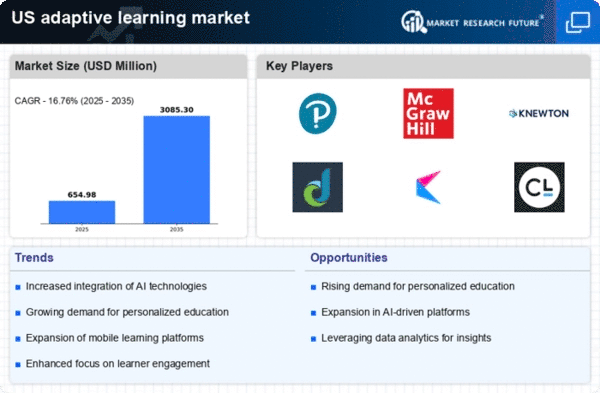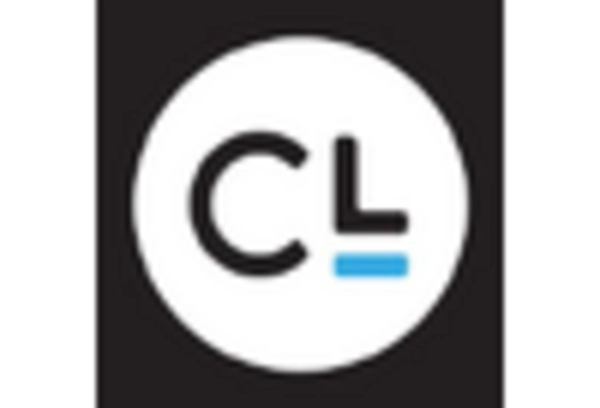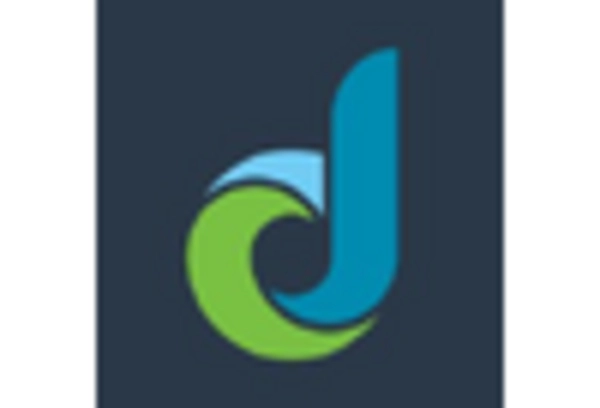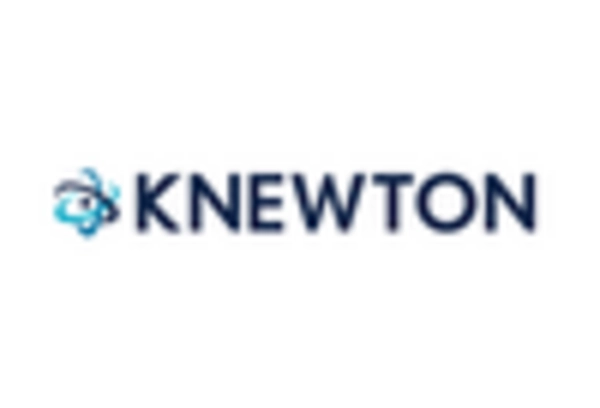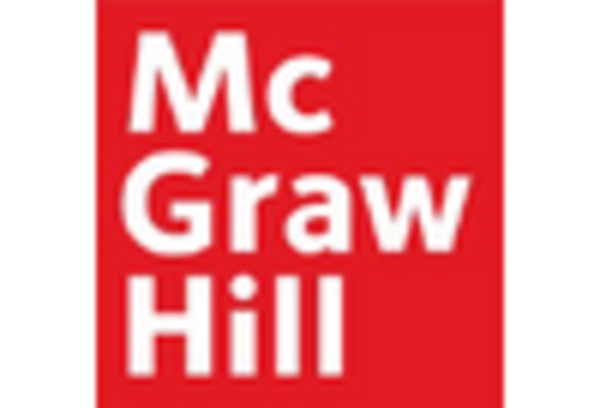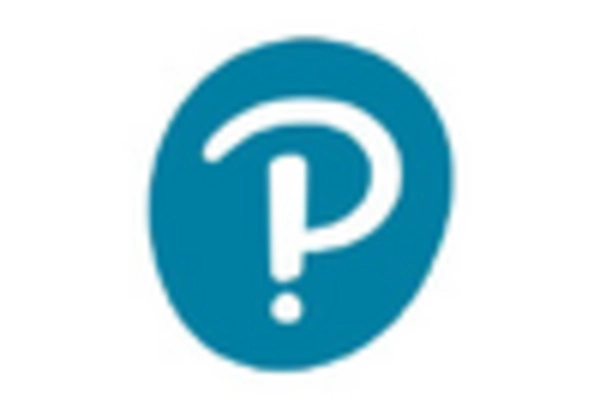Support from Educational Policies
Support from educational policies is emerging as a significant driver for the adaptive learning market. Policymakers in the US are increasingly recognizing the importance of innovative educational technologies in enhancing learning experiences. Initiatives aimed at integrating technology into classrooms are encouraging schools to adopt adaptive learning solutions. Recent legislation has allocated funding for educational technology, which is expected to bolster the adaptive learning market. As schools receive support to implement these technologies, the market is likely to witness accelerated growth. The alignment of educational policies with the goals of personalized learning further underscores the potential for adaptive learning solutions to transform educational practices and improve student outcomes.
Increased Focus on Learning Outcomes
There is a growing emphasis on measurable learning outcomes within the adaptive learning market. Educational institutions and stakeholders are increasingly prioritizing data-driven approaches to assess the effectiveness of learning interventions. This focus on outcomes is prompting the adoption of adaptive learning technologies that provide detailed analytics and reporting capabilities. In the US, institutions that implement adaptive learning solutions report improvements in student retention rates and overall academic performance. Recent studies indicate that schools utilizing adaptive learning tools have seen a 15% increase in student success rates. As the demand for accountability in education rises, the adaptive learning market is likely to expand, driven by the need for solutions that demonstrate tangible results in student achievement.
Expansion of Online Learning Platforms
The expansion of online learning platforms is a key driver of growth in the adaptive learning market. As more learners turn to digital education, the demand for adaptive learning technologies that can enhance online courses is increasing. In the US, the online education sector is projected to reach a valuation of $100 billion by 2027, with adaptive learning solutions playing a crucial role in this growth. These platforms offer flexibility and accessibility, catering to diverse learning preferences and schedules. The ability to provide personalized learning experiences in an online format is likely to attract more institutions to adopt adaptive learning technologies, thereby contributing to the overall expansion of the market.
Integration of Artificial Intelligence
The integration of artificial intelligence (AI) into educational technologies is significantly influencing the adaptive learning market. AI-driven platforms enable real-time data analysis, allowing for the continuous adjustment of learning materials based on student performance. This capability not only enhances the learning experience but also provides educators with valuable insights into student progress. In the US, the adaptive learning market is witnessing an influx of AI-powered solutions, which are expected to account for over 40% of the market share by 2026. The ability of AI to facilitate personalized learning paths and automate administrative tasks is likely to drive further adoption of these technologies, thereby reshaping the landscape of education and fostering a more efficient learning environment.
Rising Demand for Personalized Learning
The adaptive learning market is experiencing a notable surge in demand for personalized learning experiences. This trend is driven by the recognition that traditional one-size-fits-all educational approaches often fail to meet the diverse needs of learners. In the US, educational institutions are increasingly adopting adaptive learning technologies to tailor content and assessments to individual student profiles. According to recent data, the adaptive learning market is projected to grow at a CAGR of approximately 25% over the next five years. This growth is indicative of a broader shift towards customized educational solutions that enhance student engagement and improve learning outcomes. As educators seek to address varying learning paces and styles, the adaptive learning market is positioned to play a pivotal role in transforming educational practices across the country.


